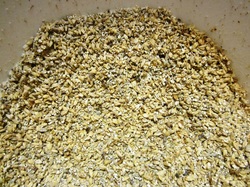
After milling I took a look at the crushed grain the first thing I noticed was that it was more fluffy in appearance and less powdery than usual. Upon closer inspection the hulls appeared to be more intact as well which led me to checking to see if any remained un-cracked. There were none so I started up the strike water and went into prep-mode like any other brewday.
This is were the story gets more interesting. For whatever reason my mash in temp was five degrees lower than I wanted. I added some boiling water but only got it up another two degrees so I ended up mashing at 151 instead of 154. Oh well right? Same story with mash out; added what Beersmith told me too and missed by about six degrees. Lautering however was alright which is what is important here in my malt conditioning experiment. With nearly 30% Rye in my recipe the first runnings came out easily enough until it gummed up after the water dipped below the grain bed. I don't think I left much in so I guess I was successful in this regard.
Either through user error or some Beersmith fail (which I've found rarely happens so I'm guessing user error) I wound up with too much sparge water so I had to leave some behind due to the limited size of our boil kettle. I also had a boil over and lost a bit of wort to trub in the boil kettle so I wound up with 4.75 gallons instead of five and still missed by a few points on my starting gravity. All in all I guess it was an ok brewday considering it was 93 degrees outside and I was struggling to keep up with everything.
So was it worth it? Honestly I would have to say no at this point but I'm going to try it one more time just to be sure. Considering the extra struggle with the grain mill, a slightly stuck sparge and no uptick in efficiency I don't really see the benefit at this point but considering the user error with the sparge water and every other little mishap it would be worth it to try again on hopefully a more smoothly routine brewday.
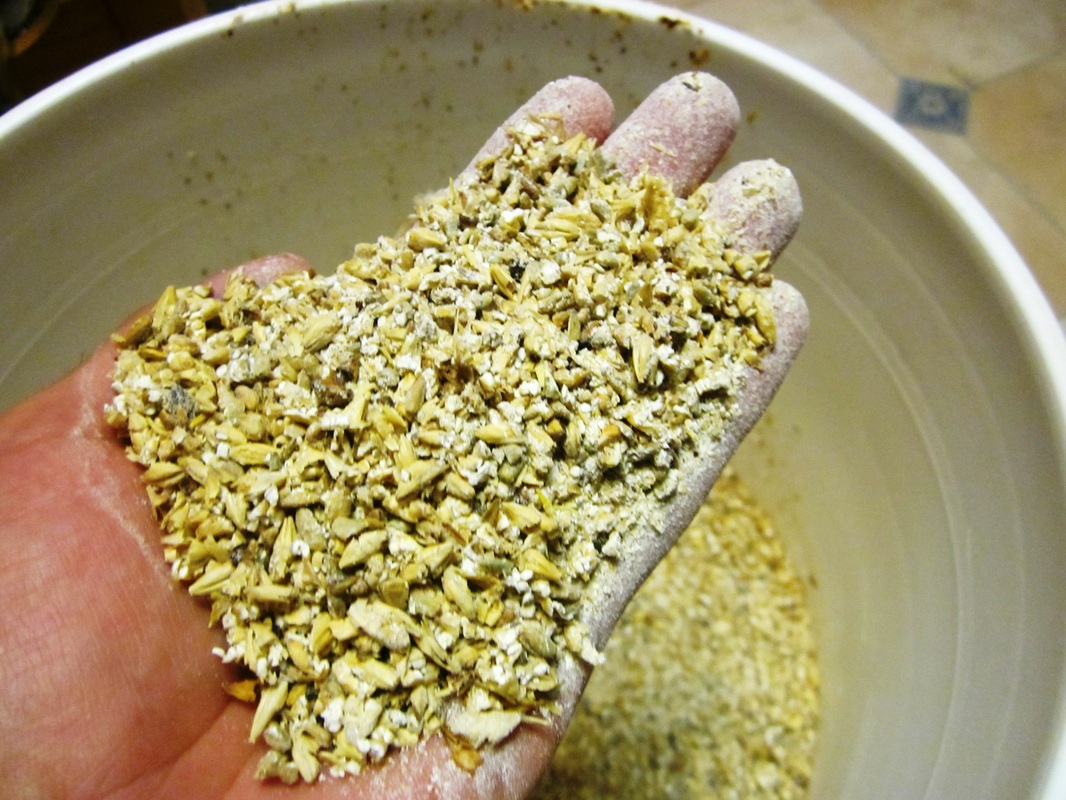
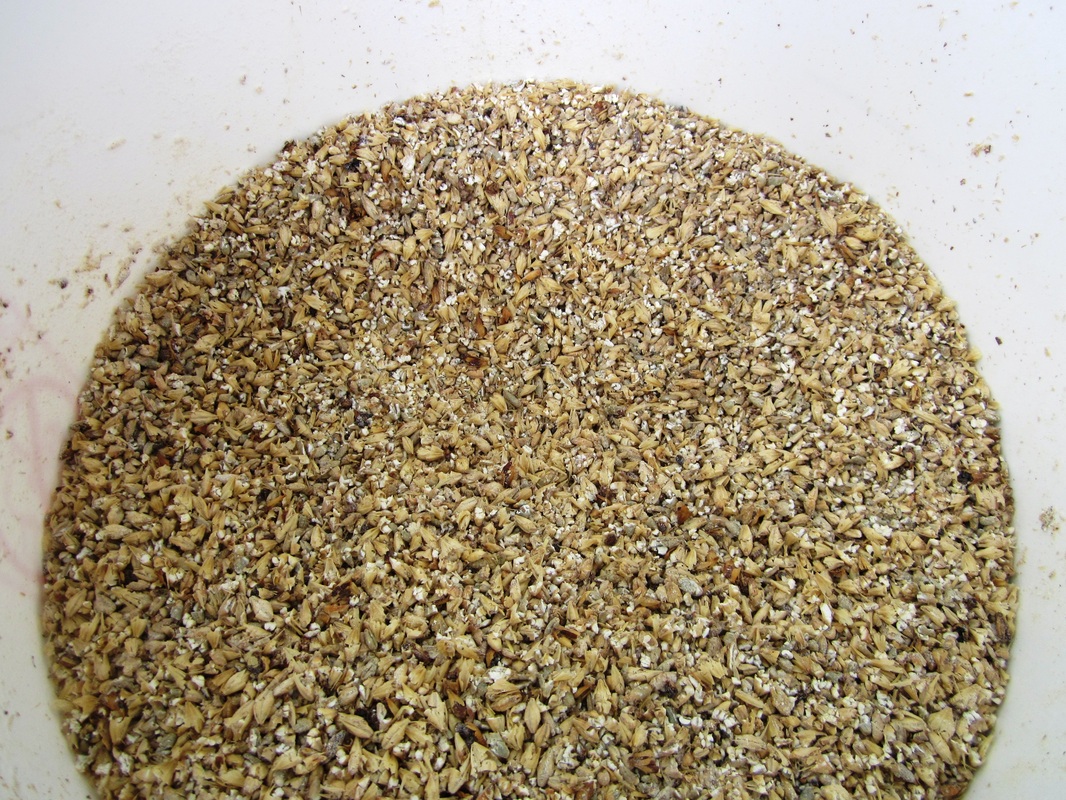
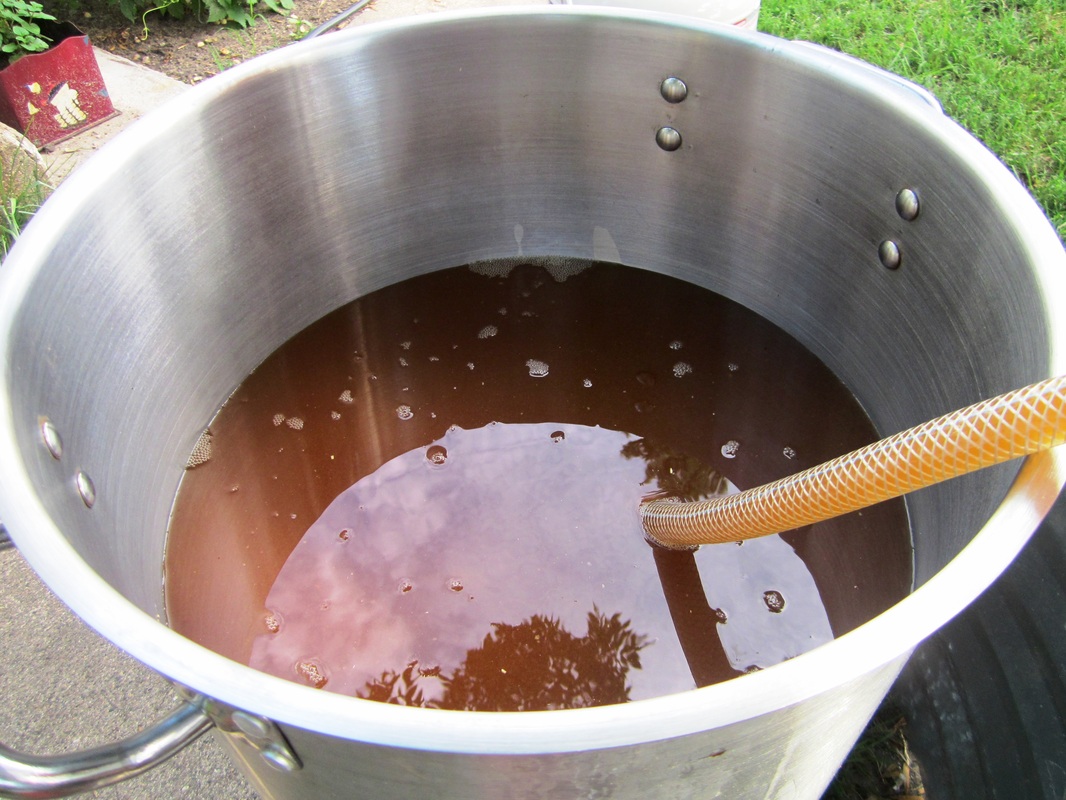
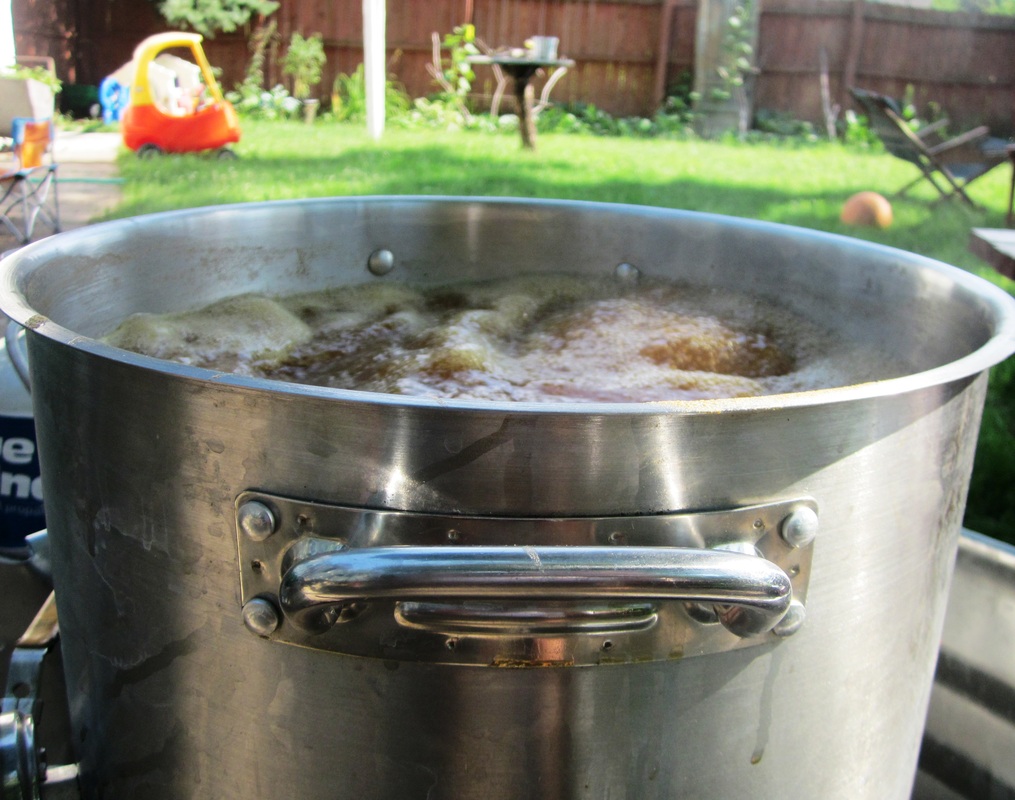
 RSS Feed
RSS Feed